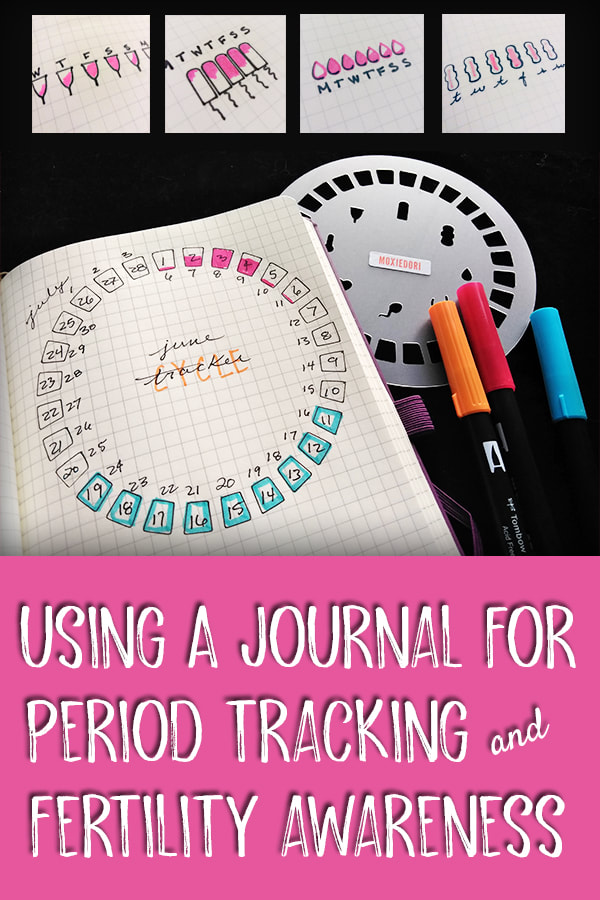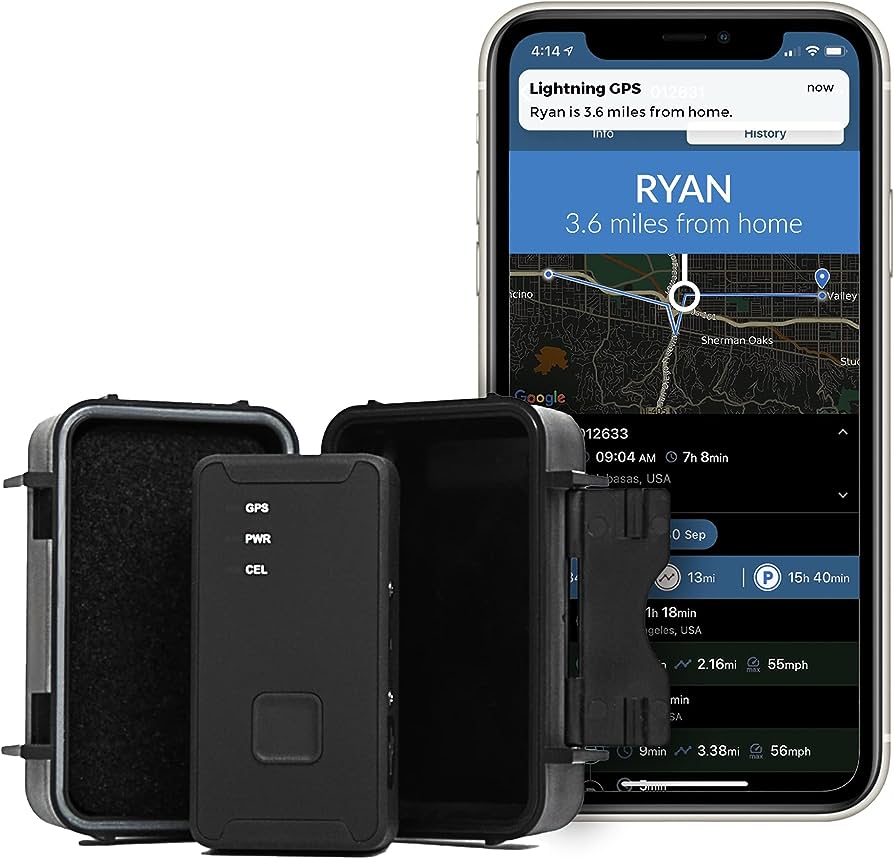To track your period and ovulation, use a period tracking app or keep a menstrual calendar. By accurately recording the start and end dates of your period each month, along with any symptoms or changes you experience, you can track your menstrual cycle and identify when you are most fertile.
Additionally, tracking your basal body temperature and cervical mucus can provide further insights into ovulation and optimal conception times.
Understanding Menstrual Cycle
Understanding your menstrual cycle is essential for tracking your period and ovulation. By keeping track of key indicators such as menstrual flow, basal body temperature, and cervical mucus, you can gain valuable insights into your fertility and plan accordingly.
The Basics Of Menstruation
Understanding your menstrual cycle is crucial for tracking your period and ovulation. It allows you to anticipate when your period is due and identify your most fertile days. In this section, we will discuss the basics of menstruation and the factors that can affect the length of your menstrual cycle.
The Basics Of Menstruation
- Menstruation, commonly referred to as a period, is a natural process that occurs in the female body.
- During each menstrual cycle, the lining of the uterus thickens in preparation for pregnancy.
- If pregnancy does not occur, the lining sheds and is expelled from the body through the vagina.
- The primary hormones involved in the menstrual cycle are estrogen and progesterone, which regulate the growth and release of an egg from the ovaries.
Factors That Affect Menstrual Cycle Length
- Hormonal Imbalances: Fluctuations in hormone levels can cause irregular periods or a shorter or longer menstrual cycle.
- Stress: High levels of stress can disrupt hormone production and lead to changes in your cycle length.
- Age: The length of your menstrual cycle can change as you approach menopause.
- Weight: Rapid weight gain or loss can have an impact on your menstrual cycle.
- Underlying Health Conditions: Certain medical conditions such as polycystic ovary syndrome (PCOS) or thyroid disorders can influence the length of your cycle.
Understanding the basics of menstruation and the factors that affect your menstrual cycle can help you track your period and ovulation more effectively. By being aware of these factors, you can gain insights into your reproductive health and make informed decisions regarding contraception or family planning.
Keep in mind that every woman’s menstrual cycle is unique, and it is essential to track your own patterns over time to better understand your body.
Tracking Your Menstrual Cycle
Tracking your menstrual cycle is essential for managing your fertility and overall reproductive health. By learning how to track your period and ovulation, you can better understand your body’s natural rhythms and make informed decisions about contraception, pregnancy planning, and overall wellness.
Importance Of
- It is essential to track your menstrual cycle as it provides valuable insights into your reproductive health and can help you understand your body better.
- Tracking your menstrual cycle can help you identify irregularities, such as missed periods or abnormal bleeding, which may indicate underlying health issues.
- By monitoring your menstrual cycle, you can predict when your next period will occur, allowing you to plan accordingly and be prepared.
- Tracking your menstrual cycle is crucial when trying to conceive or avoid pregnancy, as it helps you identify your fertile days and ovulation period.
- Understanding your menstrual cycle can also aid in managing symptoms associated with PMS, such as mood swings, bloating, and fatigue.
Methods To Track Your Period
There are several methods available to track your menstrual cycle. Each method has its advantages and may suit different individuals based on their preferences and lifestyle.
Calendar Method
- The calendar method involves tracking your period by marking the start and end dates on a calendar.
- To use this method effectively, it is crucial to have a consistent cycle length. If your cycle is irregular, this method may not be as accurate.
- By tracking your period on a calendar, you can identify patterns and predict the approximate start date of your next period.
Basal Body Temperature Method
- The basal body temperature (BBT) method involves tracking your body temperature every morning before getting out of bed.
- Your BBT increases slightly after ovulation due to hormonal changes. By monitoring these temperature changes, you can identify your fertile days and ovulation period.
- To track your BBT accurately, you need to use a specialized basal thermometer and record your temperature daily.
Cervical Mucus Method
- The cervical mucus method involves monitoring changes in the consistency and appearance of your cervical mucus throughout your cycle.
- As you approach ovulation, the mucus becomes clear, slippery, and stretchy, similar to egg whites. This indicates your fertile days.
- By observing these changes in your cervical mucus, you can predict when you are most likely to conceive or avoid pregnancy.
Ovulation Predictor Kits
- Ovulation predictor kits (OPKs) are urine tests that detect the surge of luteinizing hormone (LH) released before ovulation.
- These kits can accurately predict your fertile days by indicating when you are about to ovulate.
- OPKs are convenient and easy to use, providing a reliable method to track your ovulation and increase your chances of conception.
By utilizing one or a combination of these methods, you can effectively track your menstrual cycle, understand your fertility patterns, and make informed decisions regarding pregnancy or reproductive health. Remember that every individual’s menstrual cycle is unique, and finding the tracking method that works best for you is key to gaining valuable insights about your body.
Identifying Ovulation
Tracking your period and identifying ovulation is crucial for understanding your fertility. There are various methods you can use, such as tracking your menstrual cycle, checking your basal body temperature, and monitoring changes in cervical mucus.
Signs And Symptoms Of Ovulation
- Increase in cervical mucus: Notice changes in the consistency and amount of cervical mucus. It becomes clear, slippery, and stretchy, resembling raw egg whites. Mucus helps sperm reach the egg.
- Change in basal body temperature (BBT): Before ovulation, BBT typically ranges between 97.0 and 97.5 degrees Fahrenheit (36.1 and 36.4 degrees Celsius). After ovulation, it increases by 0.5 to 1 degree Fahrenheit (0.3 to 0.6 degrees Celsius) and stays elevated until the next menstruation.
- Mittelschmerz: Some women experience lower abdominal pain or a twinge on one side during ovulation. This pain may last from a few minutes to a few hours.
- Breast tenderness: Hormonal changes during ovulation can cause breast tenderness or soreness. This symptom usually subsides after a few days.
- Increased libido: When ovulation approaches, some women experience heightened sexual desire. It’s nature’s way of increasing the chances of conception.
- Light spotting: Spotting or light bleeding may occur during ovulation due to the release of an egg. It typically lasts for a day or two.
Tracking Basal Body Temperature For Ovulation
- Use a specialized basal body temperature (BBT) thermometer: Regular thermometers do not provide the precision needed for tracking BBT. Purchase a BBT thermometer to accurately measure your basal body temperature.
- Take your temperature every morning: Measure your temperature as soon as you wake up, before getting out of bed or engaging in any physical activity. Consistency in the timing is crucial for accurate tracking.
- Record your temperature on a fertility tracking chart: Maintain a daily record of your temperature on a fertility tracking chart or smartphone app. Plot the points to observe temperature patterns.
- Look for a temperature rise: After ovulation, you should notice a slight increase in your BBT. This temperature shift indicates that ovulation has occurred.
Hormone Testing For Ovulation
- Ovulation predictor kits (OPKs): These kits detect hormone levels in your urine to predict ovulation. They typically measure luteinizing hormone (LH), which surges 12 to 36 hours before ovulation.
- Fertility monitor devices: These devices track hormone levels through urine or saliva samples. They provide more detailed fertility information than OPKs and can help identify the fertile window.
- Blood tests: A blood test can measure the level of progesterone, a hormone produced after ovulation. This test confirms whether ovulation has occurred or not.
- Hormone monitoring with a healthcare provider: For a more comprehensive analysis, consult a healthcare provider who may recommend blood tests or ultrasound to monitor hormone levels and follicle development.
Remember, tracking ovulation is not an exact science, and individual experiences may vary. Combining different methods can yield more accurate results and maximize your chances of conception.
Benefits Of Tracking Period And Ovulation
Tracking your period and ovulation can have numerous benefits. It helps you understand your menstrual cycle, predict fertility windows, and plan for pregnancy. Additionally, it enables you to monitor your reproductive health and detect any irregularities.
Monitoring your period and tracking ovulation can offer numerous benefits for women. By understanding your menstrual cycle, you can gain insight into your fertility, aid in pregnancy planning, and gain a better understanding of your reproductive health. Let’s explore these benefits in detail:
Monitor Fertility
- By tracking your menstrual cycle, you can identify your fertile window—the days during which you are most likely to conceive.
- Understanding your fertile window can help you plan intimate moments with your partner to increase your chances of getting pregnant.
- Tracking ovulation can assist in determining if you have any irregularities or issues that may affect your fertility, allowing you to seek appropriate medical help if needed.
Aid In Pregnancy Planning
- By tracking your menstrual cycle, you can predict and plan for an optimal time to conceive if you desire to start a family.
- Timing intercourse during ovulation, when the chances of conception are highest, can increase the likelihood of getting pregnant.
- Tracking your cycle can help you identify if any factors, such as a shorter or longer cycle, may affect your ability to conceive, allowing you to seek professional advice if necessary.
Understand Reproductive Health
- Tracking your period and ovulation can reveal vital information about your reproductive health.
- Regularity or irregularity in your menstrual cycle can indicate potential health issues.
- Changes in the length, intensity, or symptoms of your period may be a sign of hormonal imbalances or other underlying conditions that warrant medical attention.
- By staying diligent in tracking your cycle, you can better understand your reproductive health and make informed decisions regarding your overall well-being.
Tracking your period and ovulation offers valuable insights into your fertility, aids in pregnancy planning, and promotes a better understanding of your reproductive health. By monitoring your cycle, you can take control of your reproductive journey and make decisions that align with your goals and desires.
Common Myths And Misconceptions
Tracking your period and ovulation is essential for understanding your fertility, debunking common myths and misconceptions surrounding these topics. Find accurate information and reliable methods to help you monitor your menstrual cycle effectively.
Can You Get Pregnant During Your Period?
Many people have different beliefs and misconceptions surrounding pregnancy and periods. Let’s address one common myth and misconception: can you get pregnant during your period?
- Bullet point 1: It is unlikely to get pregnant during your period because sperm typically survives in the female reproductive system for up to five days.
- Bullet point 2: However, if you have a short menstrual cycle or if your period lasts longer, there is a higher chance of overlapping with ovulation, increasing the possibility of pregnancy.
Is It Possible To Track Ovulation With Irregular Periods?
Tracking ovulation can be a challenging task, especially if you have irregular periods. Here are some points to consider:
- Bullet point 1: Irregular periods make it difficult to predict ovulation accurately, as the length of your menstrual cycle can vary from month to month.
- Bullet point 2: However, you can still track ovulation by paying attention to certain signs and symptoms, such as changes in cervical mucus consistency and basal body temperature.
- Bullet point 3: Additionally, using ovulation predictor kits (OPKs) can be helpful in identifying the surge in luteinizing hormone (LH) that occurs just before ovulation.
- Bullet point 4: It is recommended to consult with a healthcare professional if you have irregular periods and want to track ovulation accurately.
Remember, understanding common myths and misconceptions about periods and ovulation can help you make informed decisions about your reproductive health. It’s essential to stay well-informed and consult with a healthcare professional for personalized advice.
Improving Reproductive Health
Track your period and ovulation for improved reproductive health. Stay aware of your fertility cycle and make informed decisions about family planning and optimizing your chances of conception.
A healthy menstrual cycle and proper ovulation tracking are essential for overall reproductive health. By understanding your menstrual cycle and knowing when you are most fertile, you can increase your chances of conceiving. In this section, we will explore some tips for maintaining a healthy menstrual cycle and lifestyle changes that can enhance fertility.
Tips For A Healthy Menstrual Cycle:
- Maintain a balanced diet: Include a variety of fruits, vegetables, whole grains, lean proteins, and healthy fats in your diet. Proper nutrition can promote regular menstrual cycles and support reproductive health.
- Stay hydrated: Drink an adequate amount of water throughout the day to keep your body hydrated. Dehydration can affect hormone balance and disrupt your menstrual cycle.
- Get regular exercise: Engaging in moderate exercise can help regulate your menstrual cycle by reducing stress levels and maintaining a healthy weight. Aim for at least 30 minutes of exercise most days of the week.
- Manage stress: High levels of stress can interfere with your menstrual cycle and ovulation. Practice stress-reducing techniques such as deep breathing, meditation, or yoga to promote hormonal balance.
- Get enough sleep: Lack of sleep can disrupt your hormone levels and affect your menstrual cycle. Aim for 7-9 hours of quality sleep each night.
- Maintain a healthy weight: Being underweight or overweight can disrupt your menstrual cycle and decrease fertility. Consult with a healthcare professional to determine your ideal weight range.
- Limit caffeine and alcohol consumption: Excessive caffeine and alcohol intake can disrupt hormone levels and affect your menstrual cycle. Limit your consumption or consider alternative beverages.
- Quit smoking: Smoking has been linked to irregular menstrual cycles, decreased fertility, and infertility. Quitting smoking can improve your overall reproductive health.
- Practice safe sex: Protect yourself from sexually transmitted infections (STIs) that can damage your reproductive system and affect fertility. Use condoms consistently and consider regular STI screenings.
- Visit a healthcare professional: Regular check-ups and consultations with a healthcare professional can help identify any underlying issues that may be affecting your reproductive health.
Lifestyle Changes For Better Fertility:
- Track your menstrual cycle: Use a period tracking app or a calendar to monitor the length of your menstrual cycle and track when you ovulate. This can help you identify your fertile window and increase your chances of conception.
- Have regular sexual intercourse: Aim to have sex every 2-3 days throughout your menstrual cycle to maximize your chances of getting pregnant.
- Consider fertility-friendly lubricants: Some lubricants can affect sperm motility and viability. Use fertility-friendly lubricants or natural alternatives to avoid hindering conception.
- Minimize exposure to toxins: Avoid exposure to harmful substances such as pesticides, chemicals, and pollutants that can disrupt your hormonal balance and reproductive health.
- Limit exposure to heat: Prolonged exposure to high temperatures, such as hot tubs or saunas, can negatively impact sperm production and ovulation. Minimize your time in high-heat environments.
- Practice relaxation techniques: Engaging in activities that promote relaxation, such as meditation or massage, can help reduce stress levels and promote reproductive health.
- Consider prenatal vitamins: Consult with a healthcare professional about taking prenatal vitamins to ensure you are getting essential nutrients necessary for a healthy pregnancy.
- Stay informed: Educate yourself about reproductive health, fertility, and the changes that occur during the menstrual cycle. Understanding your body can empower you to make informed decisions about your reproductive health.
Remember, each person’s experience may vary, and it’s important to consult with a healthcare professional for personalized advice regarding your reproductive health and fertility journey. By implementing these tips and making positive lifestyle changes, you can improve your reproductive health and increase your chances of conceiving.
Seeking Professional Help
To effortlessly track your period and ovulation, seeking professional help is crucial. Experts can guide you in understanding the signs and symptoms, interpreting data from tracking apps or devices, and provide personalized advice for achieving the best results.
If you’re facing difficulties in tracking your period or determining your ovulation window, seeking professional help can provide you with valuable guidance and insight. Consulting a doctor or fertility specialist can help you uncover any underlying issues and provide you with the necessary support to increase your chances of conception.
Here are a few reasons why you should consider reaching out to a professional:
- When to Consult a Doctor:
- Irregular Periods: If your menstrual cycle is consistently irregular, with significant variations in duration or frequency, it may be time to consult a doctor. They can help identify any underlying causes and develop a suitable treatment plan.
- Long or Short Cycles: If your menstrual cycles consistently exceed 35 days or are shorter than 21 days, it could indicate an issue with your ovulation. Consulting a doctor can help determine the cause and provide appropriate interventions.
- Failed Conception: If you’ve been actively trying to conceive for more than a year (or six months if you’re over 35) without success, it’s recommended to seek professional help. A doctor can assess both you and your partner’s fertility and offer guidance or advanced treatments.
- Known Health Conditions: If you have a known health condition that may affect your fertility, such as polycystic ovary syndrome (PCOS) or endometriosis, it’s advisable to consult a doctor before you start trying to conceive. They can provide personalized guidance based on your specific situation.
- Common Fertility Tests and Treatments:
- Hormonal Blood Tests: These tests measure the levels of hormones involved in your menstrual cycle and can help identify any hormonal imbalances that may be affecting your fertility.
- Ovulation Tracking: Doctors may recommend methods to track your ovulation, such as using ovulation predictor kits, charting basal body temperature, or monitoring cervical mucus changes. These methods can help determine the best timing for conception.
- Ultrasound Imaging: Ultrasound scans can provide valuable information about the health of your reproductive organs, detecting any abnormalities or conditions that may hinder fertility.
- Fertility Medications: Your doctor may prescribe fertility medications, such as Clomiphene Citrate (Clomid) or Letrozole, to stimulate ovulation and regulate your menstrual cycle.
- Assisted Reproductive Techniques (ART): In more complex cases, ART procedures like in vitro fertilization (IVF), intracytoplasmic sperm injection (ICSI), or intrauterine insemination (IUI) could be recommended to improve your chances of conception.
Remember, seeking professional help doesn’t mean you’re facing insurmountable problems. It’s a proactive step towards understanding and addressing any potential obstacles in your fertility journey. Consulting a doctor can provide you with the expert guidance and support you need to navigate through tracking your period and ovulation successfully.

Credit: www.moxiedori.com
Frequently Asked Questions For How To Track Period And Ovulation
How Many Days After Period Do You Ovulate?
Ovulation typically occurs around 14 days after your period starts.
When Are You Most Fertile Before Or After Period?
Your most fertile time is typically a few days before ovulation, which occurs mid-cycle.
How Can I Track My Period Accurately?
Tracking your period accurately involves keeping track of the start and end dates, as well as any additional symptoms or changes you experience throughout your cycle. You can use a period tracking app, a calendar, or even a simple pen and paper to log this information.
Regularly tracking your period will help you identify patterns and better understand your menstrual cycle.
What Are The Benefits Of Tracking Ovulation?
Tracking ovulation can help you identify your most fertile days, increasing your chances of getting pregnant if you’re trying to conceive. It can also serve as a helpful tool for understanding your menstrual cycle, predicting when your period will arrive, and recognizing any irregularities or changes in your cycle.
Conclusion
Keeping track of your period and ovulation can be a game-changer for any woman who wants to take control of her reproductive health. By understanding your menstrual cycle and tracking the signs of ovulation, you can increase your chances of conceiving or avoid unwanted pregnancy.
With the help of modern technology and smartphone apps, tracking your period and ovulation has never been easier. By logging your symptoms, temperature, and cervical mucus, you can gain insights into your body’s unique patterns and fertility window. Additionally, tracking your period can also help identify any irregularities or changes in your menstrual cycle, allowing you to seek medical advice if necessary.
Whether you are trying to conceive or simply want a better understanding of your body, tracking your period and ovulation is a powerful tool to have in your arsenal. Start charting today and take control of your reproductive health.
- What Is the 11 Hour Limit: A Comprehensive Guide - June 7, 2024
- What Happens if You Drive on a Suspended License in Virginia - June 7, 2024
- Wilcox Justice Court Overview: Online Services & Legal Proceedings - June 6, 2024




